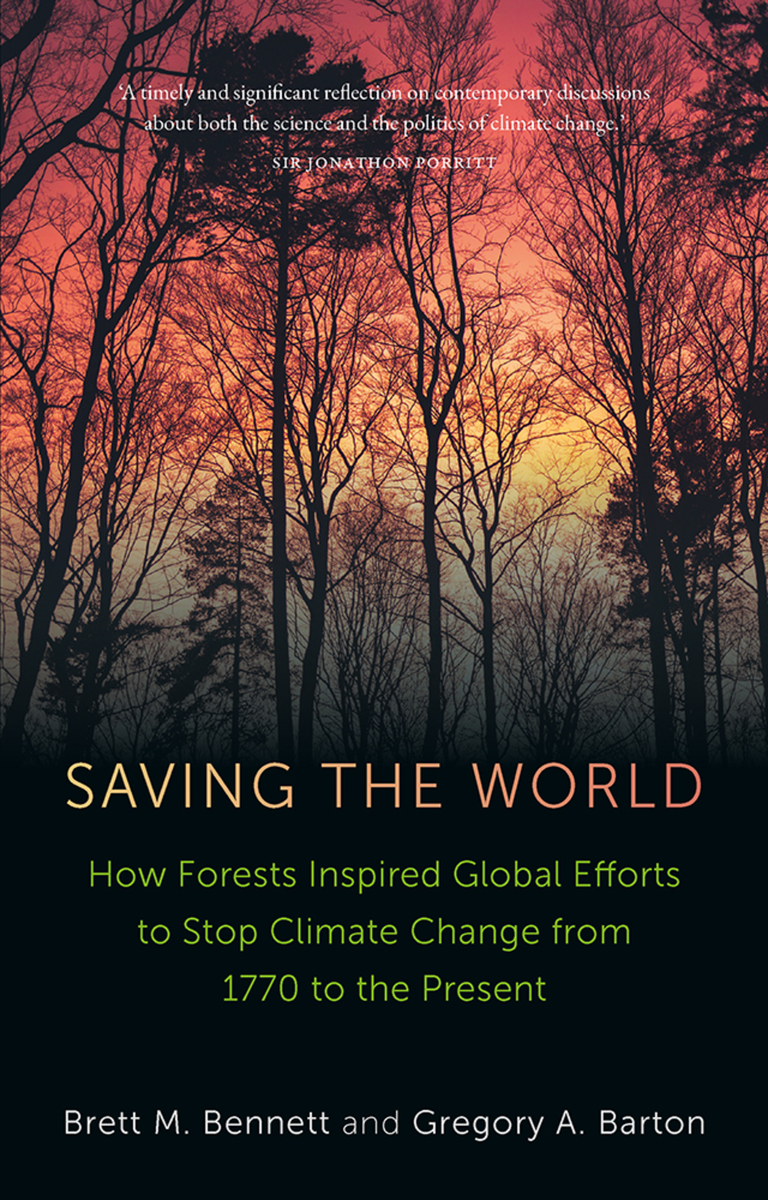Saving the World: How Forests Inspired Global Efforts to Stop Climate Change
Reaktion Books
Cloth: 978-1-78914-874-9 | eISBN: 978-1-78914-899-2
See other books on: Ecology | Ecosystems & Habitats | Forests & Rainforests | Global Warming & Climate Change | Saving
See other titles from Reaktion Books
Cloth: 978-1-78914-874-9 | eISBN: 978-1-78914-899-2
ABOUT THIS BOOK | AUTHOR BIOGRAPHY | REVIEWS | TOC | REQUEST ACCESSIBLE FILE
ABOUT THIS BOOK
An illuminating history of the forgotten concept of climatic botany that underscores how vital forests are to our future.
Saving the World tells the forgotten history of climatic botany, the idea that forests are essential for creating and recycling rain. Long before the specter of global warming, societies recognized that deforestation caused drastic climate shifts—as early as 1770, concerns over deforestation spurred legislation to combat human-induced climate change. Across the twentieth century, climatic botany experienced fluctuating fortunes, influenced by technological advancements and evolving meteorological theories. Remarkably, contemporary scientists are rediscovering the crucial role of forests in rainfall recycling, unaware of the long history of climatic botany. This enlightening book is essential reading for anyone passionate about conserving the world’s forests and preserving our climate for future generations.
Saving the World tells the forgotten history of climatic botany, the idea that forests are essential for creating and recycling rain. Long before the specter of global warming, societies recognized that deforestation caused drastic climate shifts—as early as 1770, concerns over deforestation spurred legislation to combat human-induced climate change. Across the twentieth century, climatic botany experienced fluctuating fortunes, influenced by technological advancements and evolving meteorological theories. Remarkably, contemporary scientists are rediscovering the crucial role of forests in rainfall recycling, unaware of the long history of climatic botany. This enlightening book is essential reading for anyone passionate about conserving the world’s forests and preserving our climate for future generations.
See other books on: Ecology | Ecosystems & Habitats | Forests & Rainforests | Global Warming & Climate Change | Saving
See other titles from Reaktion Books












